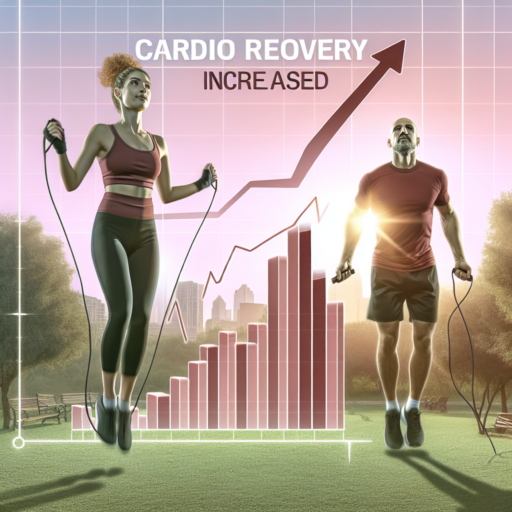What does it mean if your cardio recovery increases?
Noticing an increase in your cardio recovery time can often be perceived as a positive signal concerning your physical fitness. Essentially, if your cardio recovery rate is improving, it means that your heart and muscles are becoming more efficient at recuperating from intense exercises or activities. This efficiency is crucial for endurance, as it determines how quickly you can return to your baseline heart rate after peak exertion.
Moreover, an enhanced recovery rate is indicative of a healthier cardiovascular system. It signifies that your heart can manage stress and exertion more effectively, reducing your risk for heart-related conditions. Improved cardio recovery can be a result of consistent training, where your body adapts to the demands of your workout regimen, enhancing your overall cardiovascular resilience.
Another aspect to consider is the impact on your physical performance goals. As your cardio recovery increases, you might find it easier to engage in longer or more intense workout sessions without feeling excessively fatigued. This improvement can lead to better athletic performance, making it easier to achieve personal bests and reach new milestones in your fitness journey.
What is a good number for cardio recovery?
Understanding your cardio recovery number is crucial in gauging your heart’s efficiency after exercise. Generally, a good cardio recovery number is considered to be a decrease of at least 15-20 beats per minute from your peak heart rate within the first minute after stopping your exercise. However, this can vary based on fitness levels, age, and the intensity of the workout.
Enhanced cardiovascular fitness is often reflected in a more significant drop in heart rate after exercise. Individuals with higher levels of fitness may observe a decrease of more than 30 beats per minute. It’s worth noting that the speed of heart rate recovery can be an indicator of cardiovascular health. A slower decrease might signal a need for improved fitness or potentially underlying health issues.
Factors such as dehydration, high temperatures, and certain medications can also affect your recovery rate, making it important to consider these variables when assessing your cardio recovery number. To accurately measure your recovery rate, use a reliable heart rate monitor, ensuring consistency in your readings for a truthful reflection of your cardiovascular health.
Why is my cardio recovery getting worse?
Understanding the decline in your cardio recovery might seem perplexing, especially if you are consistently dedicating time to your fitness regimen. Several factors, often overlooked, can significantly impact your body’s ability to recover after cardiovascular exercises. It’s crucial to observe these underlying causes to better navigate towards improving your fitness outcomes.
Insufficient Rest Periods
One primary factor could be inadequate rest between your workouts. Your muscles need time to repair and strengthen, and without sufficient downtime, your performance and recovery can decline. This issue is particularly prevalent among enthusiasts who increase their workout intensity or frequency without allowing adequate recovery time.
Quality of Nutrition
Nutrition plays a pivotal role in how well your body recovers post-exercise. A diet lacking in essential nutrients, vitamins, and minerals can hinder the body’s natural recovery process. Consuming a balanced diet rich in proteins, carbohydrates, and healthy fats is vital for optimizing cardio recovery.
By taking a closer look at factors such as rest periods and nutrition, individuals can begin to understand and address the reasons behind the worsening of their cardio recovery. Recognizing and adjusting these aspects of your lifestyle can be the first step towards enhancing your cardiovascular fitness and overall well-being.
No se han encontrado productos.
Is 37 a good cardio recovery?
When evaluating the effectiveness of cardio recovery, the number ’37’ often generates curiosity. This figure, representing heart rate recovery within a minute after stopping exercise, is considered by health professionals as a marker of cardiovascular fitness. A swift decrease in heart rate post-exercise indicates a robust heart and vascular system, capable of efficiently managing the physical demands placed on the body during cardio activities.
However, interpreting the number ’37’ in the context of cardio recovery requires understanding individual health profiles and fitness levels. For some individuals, a drop of 37 beats per minute (BPM) can signify excellent cardiorespiratory recovery and endurance. It reflects the heart’s ability to quickly return to its resting state, highlighting efficient cardiovascular function. This rapid decline is often seen in athletes or individuals with high levels of physical fitness.
In contrast, for those just embarking on their fitness journey or with underlying health conditions, a 37 BPM decrease might not be ideal or achievable at the outset. Factors such as age, fitness level, and genetic predispositions play a crucial role in determining what constitutes a ‘good’ cardio recovery rate for each individual. Therefore, it’s essential to approach the interpretation of this figure with a personalized lens, acknowledging that improvements in recovery rates can be achieved over time with consistent training and a healthy lifestyle.




